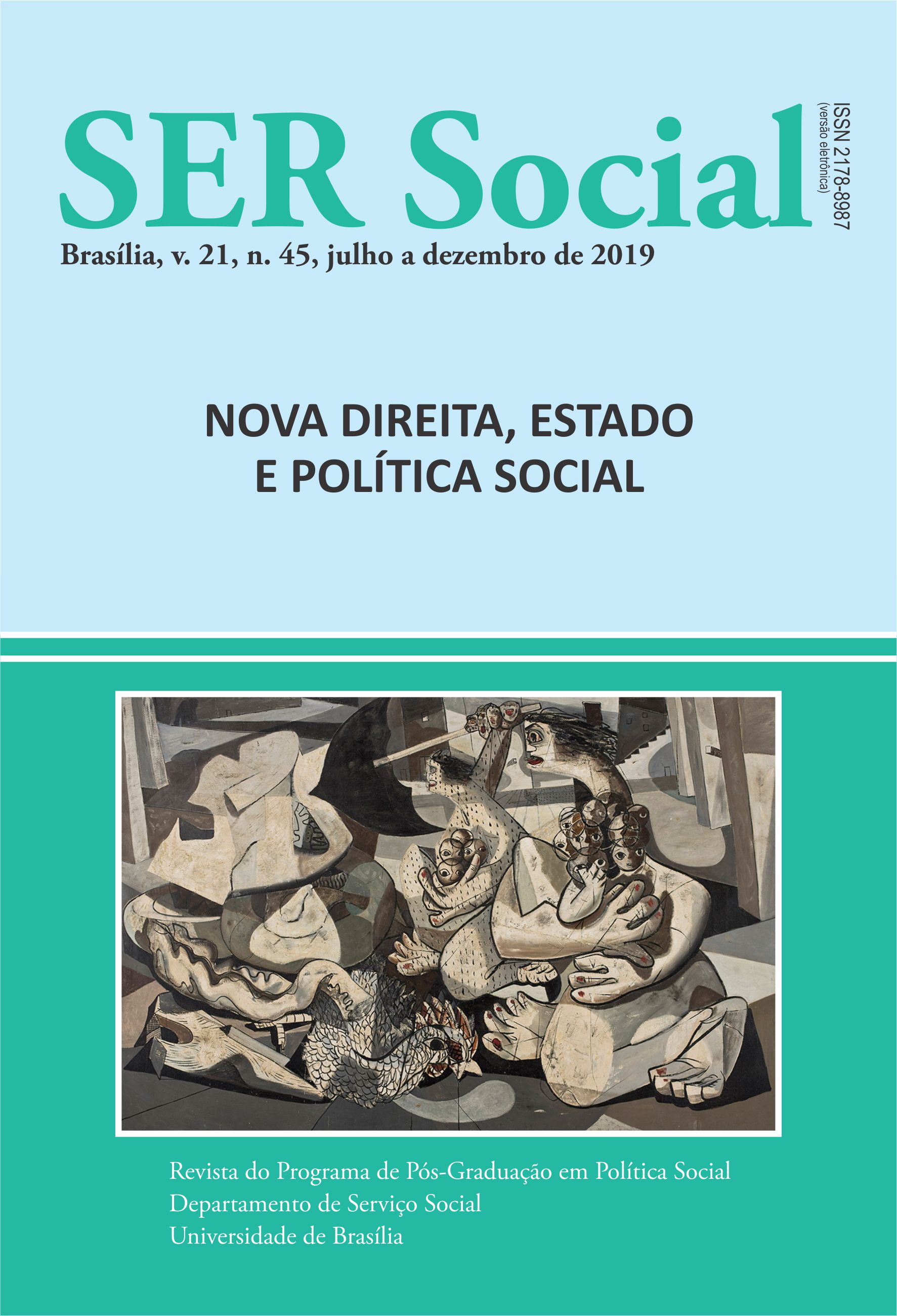Brazilian social assistance policy at a crossroads
DOI:
https://doi.org/10.26512/ser_social.v21i45.20370Keywords:
decentralization. financing. social assistance.Abstract
This article examines the implementation of the Brazilian social
assistance policy, emphasizing the model of decentralization and financing
that supports it. The objective is to analyze this model, which supported the
implantation of the System of Social Assistance, pointing out its fragilities
and limits, from the rescue of its institutionalization process, the analysis
of the profile of spending in the sector and the legal constraints placed
by the current context. Data on social assistance spending in recent years
reveal the centrality of federative co-responsability for its sustainability, as
well as a strong prioritization of income transfer programs, to the detriment
of continued services, at the federal level. It was tried to demonstrate that
the fiscal adjustment coming from the approval of the Constitutional
Amendment n. 95 weakens the continuity of services and benefits already
implemented, placing the Brazilian municipalities at a crossroads.
Downloads
Downloads
Published
How to Cite
Issue
Section
License
 Todo o conteúdo deste periódico, exceto onde está identificado, está licenciado sob uma https://creativecommons.
Todo o conteúdo deste periódico, exceto onde está identificado, está licenciado sob uma https://creativecommons.
Copyright: Os autores serão responsáveis por obter o copyright do material incluído no artigo, quando necessário.
Excepcionalmente serão aceitos trabalhos já publicados (seja em versão impressa, seja virtual), desde que devidamente acompanhados da autorização escrita e assinada pelo autor e pelo Editor Chefe do veículo no qual o trabalho tenha sido originalmente publicado.










